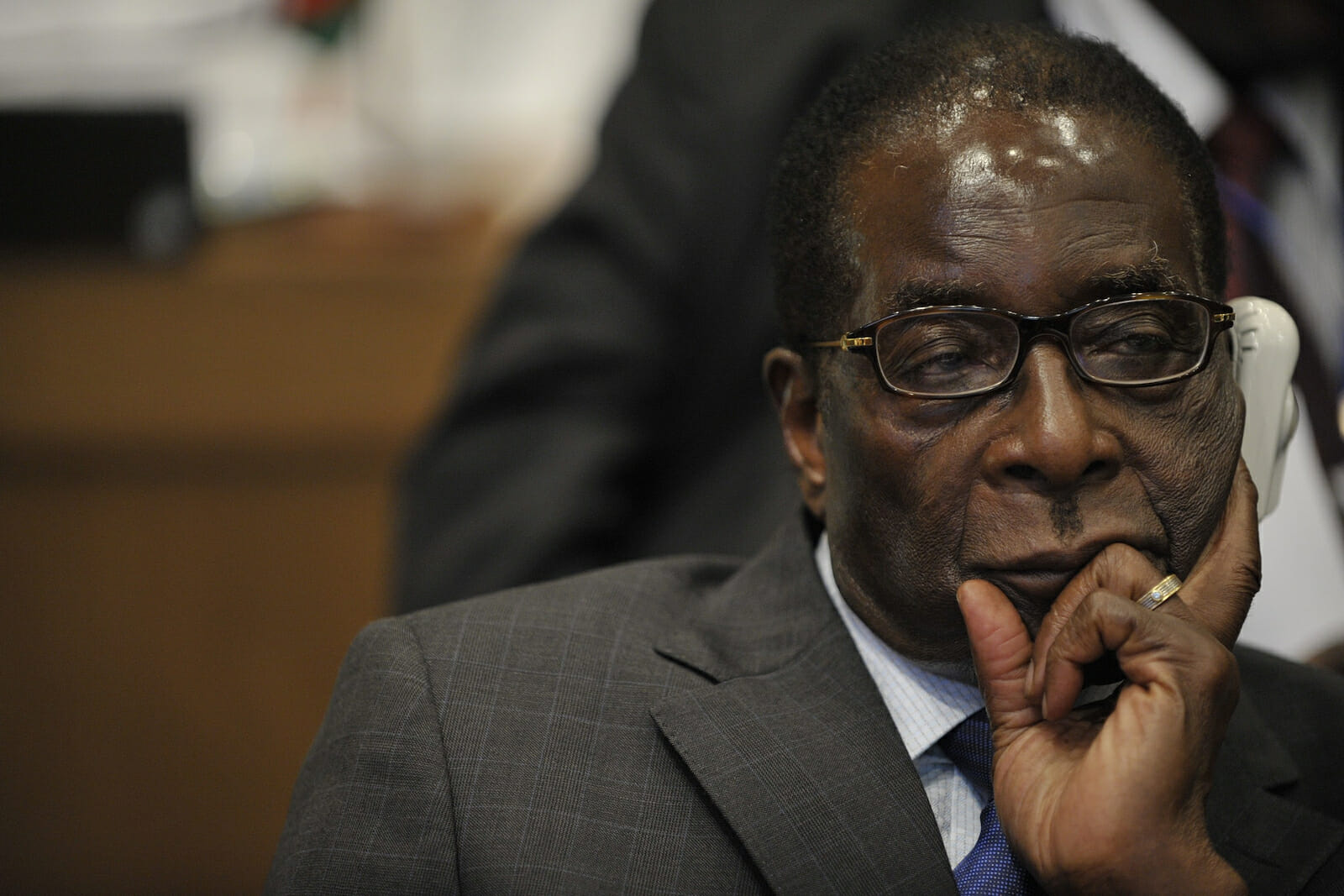
Zimbabwe Continues to Struggle
Happy anniversary, of sorts, as February 10, 2012 marked the three-year anniversary for Zimbabwe’s power sharing government. Beginning in 2009, President Robert Mugabe’s Zimbabwe African National Union – Patriotic Front (ZANU-PF) party has shared power with Prime Minister Morgan Tsvangirai’s Movement for Democratic Change (MDC) party after Mugabe’s thirty-year presidential reign. These two parties, MDC and ZANU-PF, have had a difficult relationship.
President Mugabe’s control over Zimbabwe’s security forces has allowed him to oppress any opposition from the MDC. Even most recently, during a Valentine’s Day march organized by the Women of Zimbabwe Arise (WOZA), security forces used overt violence against these unarmed protesters.
This highlighted Mugabe’s willingness to use brutal force to maintain the upper hand in this “power share” compromise. Resulting from the 2008 Parliamentary Elections, demonstrations over alleged tampering by Mugabe’s party with the election results led to the violent oppression of protestors and the MDC. The MDC continues to claim that their candidate, Tsvangirai, would have won the presidential elections had there been outside monitoring to keep an honest tally.
Prominent international pressure and denunciations of this election led, in part, to Mugabe’s eventual decision to allow for a modified joint government in February 2009, with Mugabe remaining as president and the opposition, led by Tsvangirai, becoming prime minister. This new approach to multi-party government in Zimbabwe gave hope to many Zimbabweans tired of Mugabe’s rule.
However, real evidence of progressive change over the past three years is wholly lacking. There has been a continued call for a new constitution, as well as electoral laws with term and age limits for the president. Critics note that such improvements are at least two years overdue and any movement towards change in Zimbabwe has been painfully slow. To add to the complexity, President Mugabe has been outspoken in his demand for presidential elections to be held in 2012, instead of 2013 when the next elections are officially scheduled to take place. His reasoning behind this is that he still sees himself as Zimbabwe’s “savior.” After Zimbabwe gained independence from Britain in 1980, Mugabe was elected Zimbabwe’s first president and by all accounts he played a positive role in the development of this newly independent African nation.
Zimbabweans achieved the highest literacy rates in sub-Saharan Africa thanks in part to Robert Mugabe and his campaign against high child mortality rates made Mugabe a respected leader, both domestically and internationally. However, all this progress is no longer visible as the 88-year-old president struggles to maintain legitimacy, in the eyes of many Zimbabweans and the international community.
Since the turn of the new millennium, Zimbabwe has been stricken by disease, famine, and hyperinflation, thanks in part to Mugabe’s policies. The African Union has remained neutral on Mugabe’s demand for reelections. The significance of the African Union’s stance is observed by Global Post Africa Editor Andrew Meldrum, “It’s not a make or break issue for Mugabe or for the 2012 elections which he wants to have very much and without the reforms that have been called for, but it shows that he is pushing himself further out on a limb with less support from the African Union and also I think you will see less support from the Southern African Development Community (SADC).”
As of now it is still unclear whether new elections will take place this year or in 2013. Many reports state that elections are unlikely, and the wait continues for calls for a new constitution and electoral laws, as previously mentioned. However, recent reports of a draft constitution have caused alarm within the ZANU-PF. One clause is said to state “a person is disqualified for election as President if he or she has already held office for one or more periods, whether continuous or not, amounting to 10 years.”
Given his age and years in office, this language would disqualify Mugabe from participating in any further elections. To this point, both ZANU-PF and MDC are equally represented in discussions led by the Constitution Select Committee (COPAC), which is in charge of drafting a new constitution. COPAC has been tasked with bringing legitimacy back to Zimbabwean elections. This undertaking, as expected, comes with many hidden agendas. Certain ZANU-PF members are being accused of supporting the proposed clause in an attempt to oust Mugabe. This is creating divergent tensions and has led COPAC to move its meetings from Harare, Zimbabwe’s capital, to Vumba in the eastern part of the country.
“We are balancing between disruption in Harare and the need to secure chairpersons. We are going out of Harare to Manicaland, probably Vumba. We want to concentrate and by moving away from town and from proximity to a lot of things that distract us,” according to Douglas Mwonzora, a representative of the MDC on the COPAC board.
It is here that COPAC hopes to continue their efforts in bringing about a new constitution. There is no guarantee as to a fair and just constitution for Zimbabwe, or if age and term limits will be included. As it has been before, an uncertain fate remains for Zimbabwe’s political and economic future. In the eyes of the international community there is hope that either 2012, or 2013, will be the year of change. Zimbabwe must witness structural change or international observers will observe Zimbabwe’s continued slide into disarray and violence.

